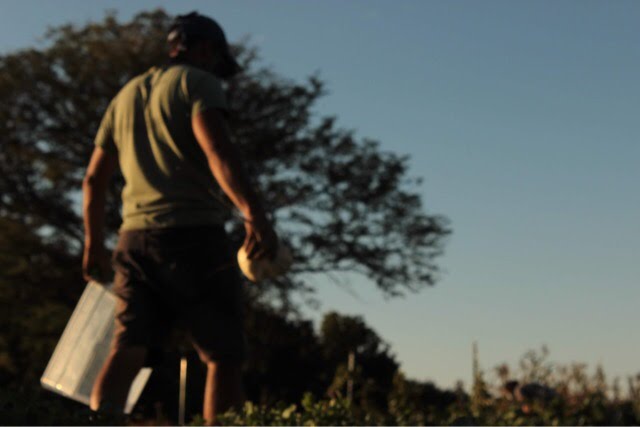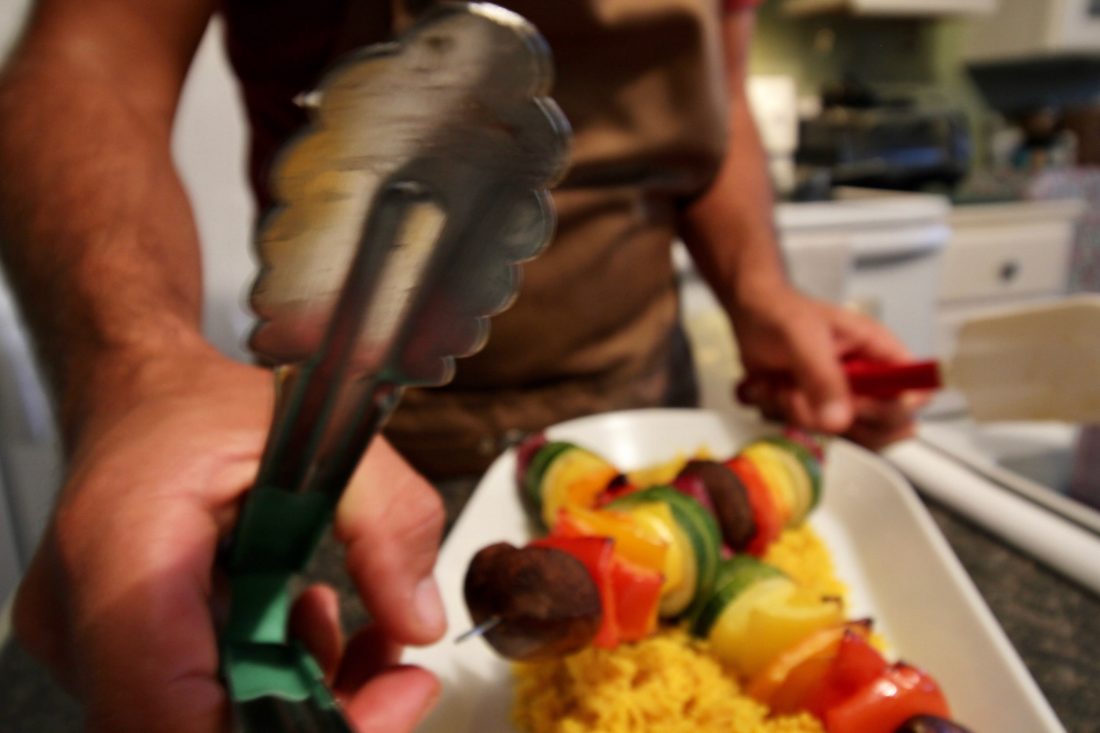Black joy, a ‘love project’ and food security: Lawrence racial equity grant recipients share goals | News, Sports, Jobs

photo by: Contributed Photos
Three of the first recipients of United Way Racial Equity Community Fund grants are planning projects for 2021. Pictured left to right are Trinity Carpenter, Clare Nderagakura, and a dish by Pantaleon Florez III.
Now that Clare Nderagakura is at a point where she can take care of herself, she wants to give back to the community that has supported her and helped her grow.
Her “love project,” Clare’s Community Closet, aims to provide basic needs such as clothes and toiletries for people without housing, families with low incomes and anyone else who needs something they know they can’t afford, she said.
Nderagakura said she has had a lot stacked against her in life, including growing up in foster care. But people in Lawrence have stepped up and have become what she needed, even helping her purchase a safe vehicle so she has reliable transportation for herself and her daughter, who is now 6.
The closet, she said, is “just me giving back what I’ve been given.”
Nderagakura’s project is one of several that are going to get some help this year from United Way grants. The United Way of Douglas County announced last fall the creation of its Racial Equity Community Fund, which aims to advance racial equity and to stop systemic racism “that is perpetuated intentionally and unintentionally through institutions, culture, and individuals,” according to its news release. Grants in amounts from $500 to $5,000 were awarded with priority given to projects and organizations led by Black, Indigenous and people of color, according to the United Way’s website.

photo by: Contributed Photo
Clare Nderagakura, of Lawrence, is pictured on Nov. 9, 2020, the opening day of Clare’s Community Closet.
Nderagakura said she started volunteering with Lawrence Food Not Bombs, which provides meals outside the Lawrence Public Library every other Monday. On Sept. 21, someone there had a trace COVID-19 contact and many of the regular volunteers had to get tested and quarantine. Nderagakura didn’t have experience cooking in mass quantities at that point, but she said she found people to help her cook 60 meals that evening.
That was when Nderagakura got excited, realizing that she could really help her community. Then she wondered what would happen if she brought out some donated clothes.
“So I grabbed a clothing rack and I put out some clothes, and that’s literally how this has happened,” she said. “The need for free clothing as well as free food — it’s huge.”
More and more people started giving her clothing donations, and eventually funds to help set up a location. Thanks to property managers who gave her a temporarily reduced rental rate, Nderagakura opened Clare’s Community Closet at 720 Delaware St. No. 1 on Nov. 9. The $3,250 grant she received will help pay for rent and bills for the location.
The closet will probably have to find a new location after March, she said, but for now it’s open by appointment to those in need. Volunteers can help hang clothes, but Nderagakura does the sorting herself — she’s “very particular” about the clothes that go to people, she said.
“When you’re in foster care and you have to leave placements with just a garbage bag, it changes you,” she said, her voice breaking. “So no one receives anything that is not of good quality and going to make them feel better about themselves.”
Asked how the community can get involved and help, Nderagakura’s first answer was that right now she would actually ask people to volunteer for the Lawrence winter shelter, at least until it’s warm enough that people don’t need it anymore. She has also been raising funds and purchasing tents to help provide shelter to those in need.
To reach Nderagakura or arrange an appointment at Clare’s Community Closet, email [email protected].
Black Summer
Trinity Carpenter is excited to make Black Summer as big as she makes everything, she said.
Her vision is for a month of events that center Black people and the Black community in Lawrence. It’s an idea she’s had for a long time, but she has never had the funding or time to accomplish it, she said.

photo by: Contributed Photo
Trinity Carpenter
She said she wanted to revisit the Red Summer of 1919, when white supremacist riots took place across the country, look at that era and what it meant for Black people and “where we are now,” she said.
“I think it’s in our lineage to take something very traumatic and try to get what we can out of it,” she said.
Carpenter is planning to use the $4,000 grant her project received for events over four Saturdays, beginning June 12 and ending July 3. The first Saturday will focus on Black oral tradition. She wants Black elders to talk about what it was like growing up in Lawrence, but she also wants to “incorporate some truth-telling” and have people talk about their experiences with policing and the criminal justice system, she said.
The second Saturday falls on June 19, and Carpenter said she’s hoping to partner with the local Juneteenth coordinators to make it a big celebration of the holiday, which celebrates the emancipation of slaves in America.
The third Saturday, Carpenter is planning a Black art festival. She wants artists of all mediums, including poetry, film, song, dance, visual art and more, to create from the prompt “My Black is”. The fourth Saturday falls on July 3, and she wants to discuss what the July 4 holiday means to the Black community, “knowing that obviously that wasn’t our Independence Day,” she said.
Carpenter said she was also planning a Black Mamas Mother’s Day action to support Black mothers who are being affected by incarceration.
She said one of her goals was to have food involved at every event. She said that every time her ancestors gathered they would feed one another, and she hates that that’s missing from a lot of events amid the coronavirus.
“Feeding everybody and enjoying each other and having just Black-centered, Black joy, conversations and healing and all the rest is really important to me, and they deserve it,” she said.
She said she realized that COVID-19 restrictions could still affect plans, but she’s putting together a planning committee to help make it all work.
“I’ve got the agreement of a couple beautiful Black people in the community already, and so I’m really excited about how it shakes out, and the fact that we have funding and, honestly, just ample space and opportunity to create something really special,” she said.
Carpenter said promotion, sponsorships, partnerships and financial donations would be helpful, and more details would become available as the events got closer. She can be reached at [email protected].
Communal cooking program
Another grant recipient is hoping to eliminate barriers in order to help Black, Indigenous and people of color learn to cook for their communities.
Pantaleon Florez III started Maseualkualli Farms in North Lawrence in 2018. The no-till, no-fossil-fuel farm focuses on food security, and its name is Nahuatl for “The People’s Farms.” Florez donates a lot of produce to food pantries, organizations and individuals in need because when he was a graduate student at the University of Kansas, there were times when he didn’t have enough to eat, he said.
“I want to run the farm with the intention of making sure that other people don’t have to go through that same insecurity,” he said.

photo by: Frances Soto Photography/Contributed Photo
Pantaleon Florez III tends to his farm, Maseualkaulli Farms in North Lawrence, in this contributed photo.
The $5,000 grant has helped Florez start the BIPOC Communal Cook Program. Participants will have five hours of instructional training and five hours of practical training.
To eliminate financial barriers, participants will be given between $150 and $200 worth of gear. They will also be paid $18 an hour for the training, Florez said.
“I think that’s a really important component to the equity piece for people to actually get paid for that training because not everybody can just take 10 hours out of their week, out of potentially their work week, to do trainings like this,” Florez said.
Participants will also cook a meal for the community of their choice, Florez said. He had initially intended for the meals to go to those in need in Lawrence, but he changed that plan.
“I think since we’re talking about equity and we’re talking about centering Black Indigenous people of color, they should get to pick their community,” Florez said. “… I decided to go ahead and change that part up just a little bit to really allow them (the participants) the freedom of picking their community intentionally and serving them intentionally.”
Florez said he hoped to help inspire people to cook more and to use as many fresh ingredients as they could. Part of the training will also focus on how to cook vegan and gluten-free food.
Florez can be reached via a contact form on the farm’s website at masefarm.org.

photo by: Connie Fiorella Fitzpatrick/Contributed Photo
Pantaleon Florez III holds a plate of rainbow veggie skewers with turmeric rice in this contributed photo.
Other grant recipients
According to the United Way’s website, other recipients of the United Way Racial Equity grants include:
• Hidden Jewel Hair Salon and Spa. The salon, at 1246 Haskell Ave., has been strained by COVID-19: “It’s very difficult to see one client at a time when Black hairstyling takes the time and care that it does,” according to information on the United Way’s website. The owner also counsels clients on what health issues their hair health might reveal, and she wants to continue serving her clients, according to the website.
• SWAP, or Sisters With a Purpose. The organization, which launched in 2016, advocates for those who have been affected by institutional racism and systemic inequality. One of its goals this year is to become registered as a nonprofit, according to the website.
• The Indigenous Community Center Ad-Hoc Group. Its project, “Telling our Stories through an Indigenous Perspective and Lens,” will focus on digital storytelling through creating videos about the Indigenous Community Center’s services and programs, according to the website.
• Sanctuary Alliance Lawrence, Kansas. The group that helped the City of Lawrence craft an ordinance to support immigrants also has an emergency fund where undocumented people can request financial assistance with rent, bills, legal fees and daily life, according to the website.
• Sunrise Project. The organization wants to host a session of Activate Your Voice, “a leadership and civic engagement training that prioritizes Black, Indigenous and People of Color,” according to the website. The goal is to provide participants with food, child care and transportation to ensure equitable access, according to the website.
Contact details and more information about all the organizations are available on the United Way’s site, unitedwaydgco.org/racial-equity-community-fund.
Contact Mackenzie Clark
Have a story idea, news or information to share? Contact public safety reporter Mackenzie Clark:
Related coverage
• Oct. 1, 2020: United Way of Douglas County creates new Racial Equity Community Fund
